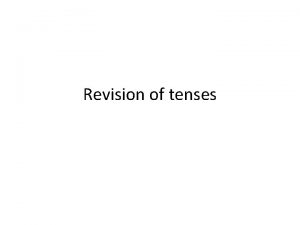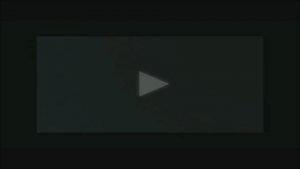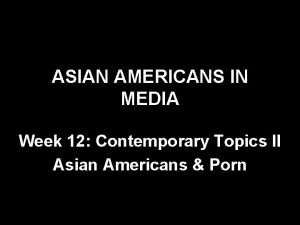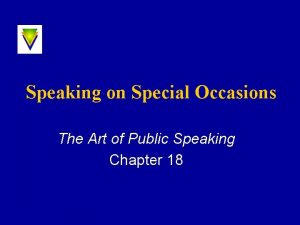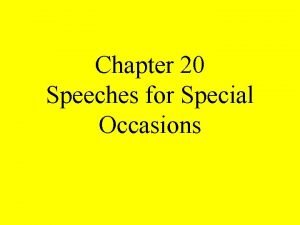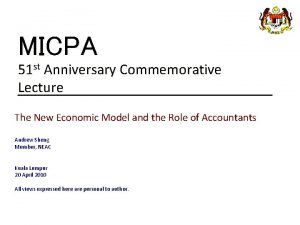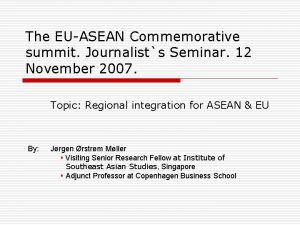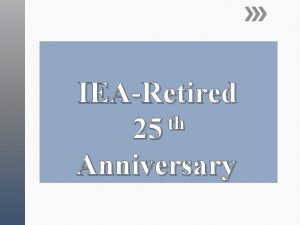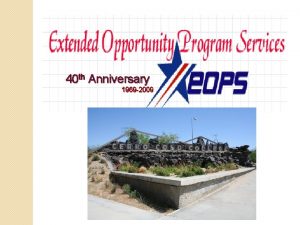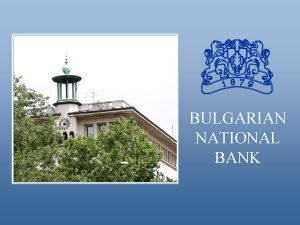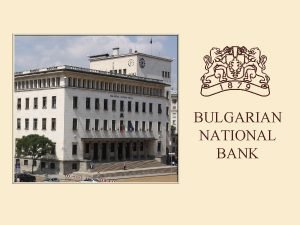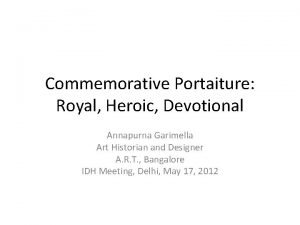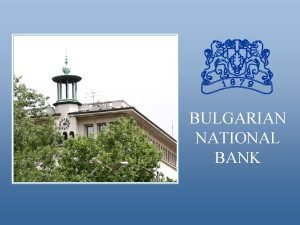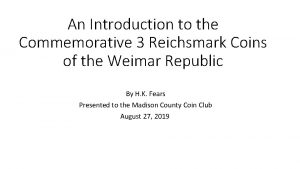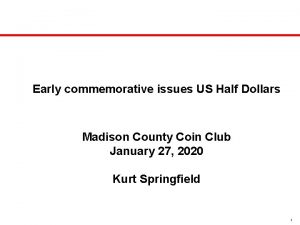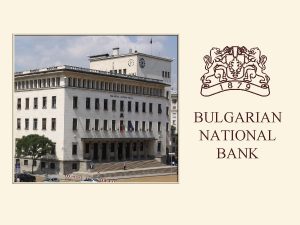Commemorative Seminar on the 10 th Anniversary of


















- Slides: 18

Commemorative Seminar on the 10 th Anniversary of the RIG Presentation on the CPTA By Jean Baptiste Niyizurugero, CPTA Vice-chairperson

Objectives of the seminar • Sharing good practices on the implementation of three key components of the RIG that could inspire other actors in the region; • Identifying challenges hindering implementation of RIG and finding solutions;

Objetives of the seminar • Strengthening the profile and the role of the CPTA in supporting and enhancing effective implementation of the RIG and torture prevention.

Summary 1. Key dates on the RIG and CPTA process 2. What‘s the CPTA? • Mandate; Composition 3. Challenges encountered 4. Progress/achievements made 5. Perspectives

1. Background/Key dates • October 2000: APT proposal to the African Commission • February 2002: RI Workshop/Drafting of the RIG • October 2002: RIG adoption by ACHPR. Resolution n° ACHPR/Res. 61(XXXII)02

Background/Key dates (ctnd) • July 2003: Endorsment of the RIG by AU Summit in Maputo, Mozambique • June 2004: establishment of the Followup Committee on the implementation of the RIG • Nov. 2009: Change of name, Follow-up Committee into CPTA. Resolution n° ACHPR/Res 158(XLVI). 09

2. What’s CPTA • Special/thematic mechanism of the ACHPR dedicated to dealing with the issue of torture with a particular emphasis on prevention

2. 1. CPTA mandate ACHPR Resolution ACHPR/Res. 61(XXXII)02, CPTA mandate consist in: • Organising seminars to disseminate the RIG to national and regional stakeholders • Promoting and facilitating the effective implementation of the RIG within member States • Developing & proposing to the ACHPR strategies on the promotion and implementation of the RIG.

2. 2. CPTA composition • Composition: ACHPR, APT and any prominent African experts as ACHPR may decide. • Members are appointed by a resolution of the ACHPR for a two years renewable term. • Currently: 5 members (2 commissioners, 3 expert) • Headed by a Chairperson (Commissioner of the ACHPR, currently: Chair of the ACHPR) and a Vice-Chair. • Secretariat services and funding provided by ACHPR.

3. Challenges encountered • January 2005, CPTA adopted a plan of action, but never implemented • Lack of financial ressources: before 2009 no specific budget allocated to SM (e. g. CPTA couldn’t formaly meet or undertake any activity between 2005 -2008) • Lack of Secretariat staff dedicated to the mechanism (e. g. one legal officer servicing several Special Mechanisms) • Lack of coodination and adequate communication between members

3. Challenges encountered • Lack of clear policy of the ACHPR on Special Mechanisms (SM) • Way in which funding is allocated to SM by the ACHPR (no specific amount allocated to each mechanism, common envelop to all mechanisms for promotion missions, first arrived first served)

4. Progress/achievements • Despite of these challenges, some progress have been made, particularly since 2009 thanks to APT support (provided CPTA with an Assistant) and the allocation of some funding to SM by ACHPR • Dissemination of RIG: publication of RIG booklet in 4 AU languages (2003)

4. Progress/achievements • Publication of a practical guide on the implementation of the RIG (2008) with the support of the APT and OHCHR • Seminars for law enforncement officials and other concerned personnel: Nigeria (2008), Liberia (2009), Benin (2009) and Cameroun (2012) • Promotion visits: Uganda (2009), Benin (2009) and Mauritania (2012) • Consultative meetings: OPCAT regional conference in Dakar (2010), Seminar on the functionning of Senegalese NPM (2011), RIG+10 Commemorative Seminar

4. Progress/achievements • Internal development: Regular meetings since 2010; a three years Strategic Plan (2012 -2014) developed in 2011; Internal rules (in progress) to be adopted after this seminar • Interaction with relevant international bodies (initiated relationship with SPT and UN SRT and the OHCHR)

5. Perspectives • CPTA, a regional torture prevention catalyst? ! • How to strengthen the profile and the role of the CPTA in enhancing torture prevention in Africa? • What the ACHPR/CPTA should do? • What other actors can do?

5. Perspectives • Does the mandate set in 2002 respond to current needs and expectations in regard to torture prevention? (review of CPTA mandate) • Clear interaction CPTA-Rapporteur SP • CPTA to move its focus from promotion to analysis of substantive issues and concepts in order to provide advice and technical support to national actors

5. Perspectives • CPTA to become progressvely an expert body providing technical authoritative guidance/views on the implementation of RIG provisions • Interaction/cooperation between + CPTA, SPT, UN SRT, NANHRI • Synergies between CPTA, NHRIs, NGOs and other relevant actors.

 Put each verb in brackets into the correct tense
Put each verb in brackets into the correct tense 47 ronin graves
47 ronin graves Plmar history
Plmar history Porn
Porn The art of public speaking chapter 18
The art of public speaking chapter 18 Speech of courtesy examples
Speech of courtesy examples Quá trình desamine hóa có thể tạo ra
Quá trình desamine hóa có thể tạo ra Các môn thể thao bắt đầu bằng tiếng chạy
Các môn thể thao bắt đầu bằng tiếng chạy Công của trọng lực
Công của trọng lực Hát kết hợp bộ gõ cơ thể
Hát kết hợp bộ gõ cơ thể Khi nào hổ con có thể sống độc lập
Khi nào hổ con có thể sống độc lập Thế nào là mạng điện lắp đặt kiểu nổi
Thế nào là mạng điện lắp đặt kiểu nổi Các loại đột biến cấu trúc nhiễm sắc thể
Các loại đột biến cấu trúc nhiễm sắc thể Thế nào là sự mỏi cơ
Thế nào là sự mỏi cơ Vẽ hình chiếu đứng bằng cạnh của vật thể
Vẽ hình chiếu đứng bằng cạnh của vật thể độ dài liên kết
độ dài liên kết Chó sói
Chó sói Thiếu nhi thế giới liên hoan
Thiếu nhi thế giới liên hoan điện thế nghỉ
điện thế nghỉ
